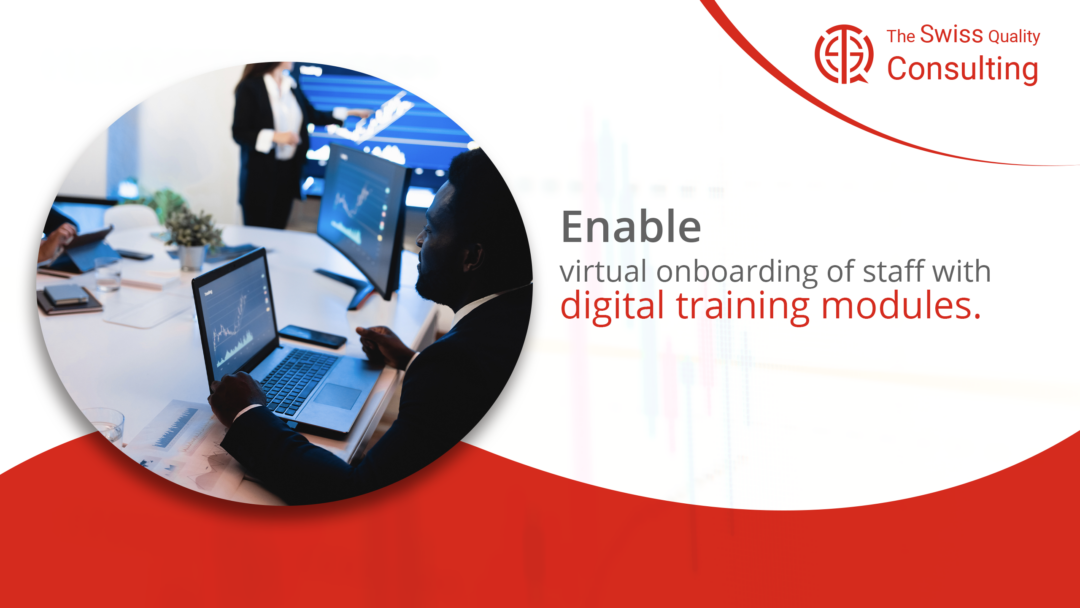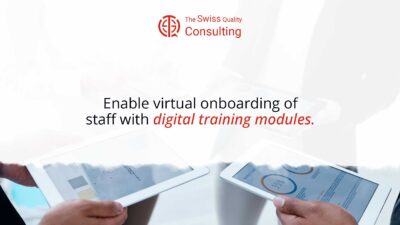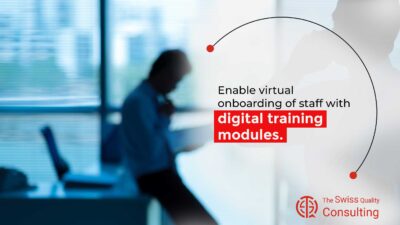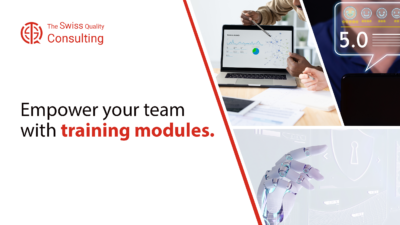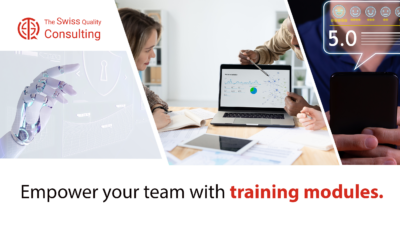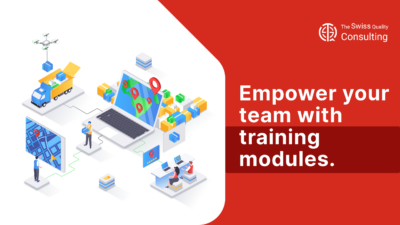Transforming Employee Onboarding for the Digital Age
In today’s rapidly evolving business landscape, embracing technological advancements is crucial for companies aiming to stay competitive. One such advancement reshaping the corporate world is the integration of Virtual Onboarding with Digital Training Modules. This approach is not just a trend but a necessity, especially in the context of generative artificial intelligence and its impact on business operations and employee development.
Understanding the Shift to Virtual Onboarding
The traditional approach to employee onboarding is undergoing a profound metamorphosis. With the emergence of dynamic and interactive digital training modules, businesses are now equipped to embrace the virtual onboarding revolution, transforming the process into a seamless, engaging, and empowering experience for new hires. This transformative shift transcends mere technological adoption; it represents a strategic imperative to:
1. Enhance the Employee Experience: Digital onboarding modules offer personalized learning journeys, interactive content, and flexible learning paths, tailoring the onboarding experience to individual needs and preferences. This fosters a sense of ownership and agency, boosts engagement, and promotes a positive first impression of the company culture.
2. Streamline the Integration Process: Digital modules automate administrative tasks, expedite paperwork completion, and provide immediate access to essential information and resources. This reduces onboarding time, eliminates unnecessary delays, and allows new hires to become productive members of the team faster.
3. Foster Collaborative Learning and Knowledge Sharing: Digital platforms facilitate real-time interactions among new hires, team members, and mentors, fostering collaboration and knowledge sharing. This promotes peer support, accelerates learning, and builds strong relationships within the organization.
4. Provide On-Demand Access to Resources and Support: Digital modules offer 24/7 access to training materials, FAQs, and support channels, empowering new hires to find answers and resolve issues independently. This fosters a sense of self-reliance, reduces dependence on others, and promotes a culture of continuous learning.
5. Personalize Onboarding Journeys and Accommodate Diverse Needs: Digital modules can be tailored to individual learning styles, skill levels, and prior experiences. This ensures that each new hire receives the specific training and support they need to succeed in their role.
6. Measure Onboarding Effectiveness and Continuously Improve: Digital platforms provide comprehensive data and analytics capabilities, allowing businesses to track progress, identify areas for improvement, and refine their onboarding strategies over time. This data-driven approach ensures that the onboarding experience remains relevant, effective, and optimized for long-term success.
7. Build a Scalable and Cost-Effective Onboarding System: Digital modules eliminate the need for in-person training sessions, reducing logistical complexities and associated costs. This scalability allows businesses to onboard large groups of new hires efficiently and cost-effectively, regardless of their location.
8. Future-Proof Onboarding for the Digital Age: By prioritizing a digital onboarding strategy, businesses prepare themselves for the future of work. This future-proof approach fosters a culture of adaptability, continuous learning, and technology-enabled collaboration, ensuring that new hires are equipped with the skills and knowledge needed to thrive in the rapidly evolving digital landscape.
Beyond Efficiency: A Foundation for Unwavering Engagement and Enduring Success:
By prioritizing the digital transformation of onboarding, organizations unlock the true potential for achieving unwavering engagement, empowering new hires, and building a culture of continuous learning. This transformative approach empowers them to enhance the employee experience, streamline integration, foster collaboration, provide on-demand support, personalize journeys, measure effectiveness, build a scalable system, and future-proof onboarding for the digital age, ultimately building a future where new hires are not just welcomed, but embraced, empowered, and equipped to become valuable members of the team from day one.
Embrace the power of digital onboarding and embark on a transformative journey towards a future where your organization is a magnet for top talent, your onboarding process is a seamless and engaging experience, and your success is fueled by a workforce empowered with the knowledge and skills necessary to thrive in the digital era. By investing in robust digital modules, fostering a culture of learning and support, and empowering your team to leverage technology effectively, you can unlock the full potential of your organization and build a future of enduring success and unwavering engagement.
Benefits of Virtual Onboarding and Digital Training
Adopting virtual onboarding strategies offers several advantages:
Cost-Effectiveness: Digital training reduces the need for physical resources, leading to cost savings.
Flexibility: Employees can complete training at their own pace, accommodating diverse learning styles.
Consistency: Ensures uniform training experiences for all employees, crucial for maintaining standards across global operations.
Change Management and Leadership Skills in Virtual Onboarding
Effective change management is vital in implementing virtual onboarding. It requires leadership and management skills to guide teams through this transition smoothly. Executive coaching services play a critical role in equipping leaders with the necessary skills to drive this change.
Generative Artificial Intelligence in Employee Training
Generative Artificial Intelligence (AI) is revolutionizing the way training content is created and customized. AI-driven platforms can tailor training modules based on individual employee needs, thereby enhancing learning outcomes and business success.
Case Studies: Success Stories in Virtual Onboarding
Several organizations have successfully implemented virtual onboarding and digital training, resulting in increased productivity and employee satisfaction. These case studies serve as inspirational examples for businesses considering a similar transition.
Integrating Technology in Project Management
Project management greatly benefits from these technological advancements. Digital training ensures that project managers and their teams are up-to-date with the latest tools and methodologies, essential for effective communication and project success.
Organizational Culture and Technology Integration
Embracing virtual onboarding and digital training modules also positively impacts the organizational culture. It fosters a culture of innovation and continuous learning, crucial for businesses in today’s dynamic environment.
Conclusion Virtual Onboarding with Digital Training Modules
In conclusion, the integration of virtual onboarding with digital training modules represents a forward-thinking approach that aligns with modern business practices. It is an investment in the future of workforce development, ensuring that businesses are well-equipped to face the challenges of a digital world.
#VirtualOnboarding #DigitalTraining #BusinessInnovation #EmployeeDevelopment

